
Mechanical Design
Design, Simulation & Optimization on Electrical and Optical Parameters of Alq3 QW-OLED
Although the light-emitting diode (LED) was discovered in the 1900s, it is now widely used in lighting, screens, and a variety of other indoor and outdoor applications. (Organic Light Emitting Diode) OLED is one of the advancing branches of LED technology. In the structure of Alq3 OLEDs, highlight-efficiency optical materials such as TPD (hole transport layer) and Alq3 (electron transport layer) have been used. Organic light emitting layers are between two electrical contacts. The anode was made of indium tin oxide (ITO), and the cathode was made of aluminiumlithium (Al/Li). This article
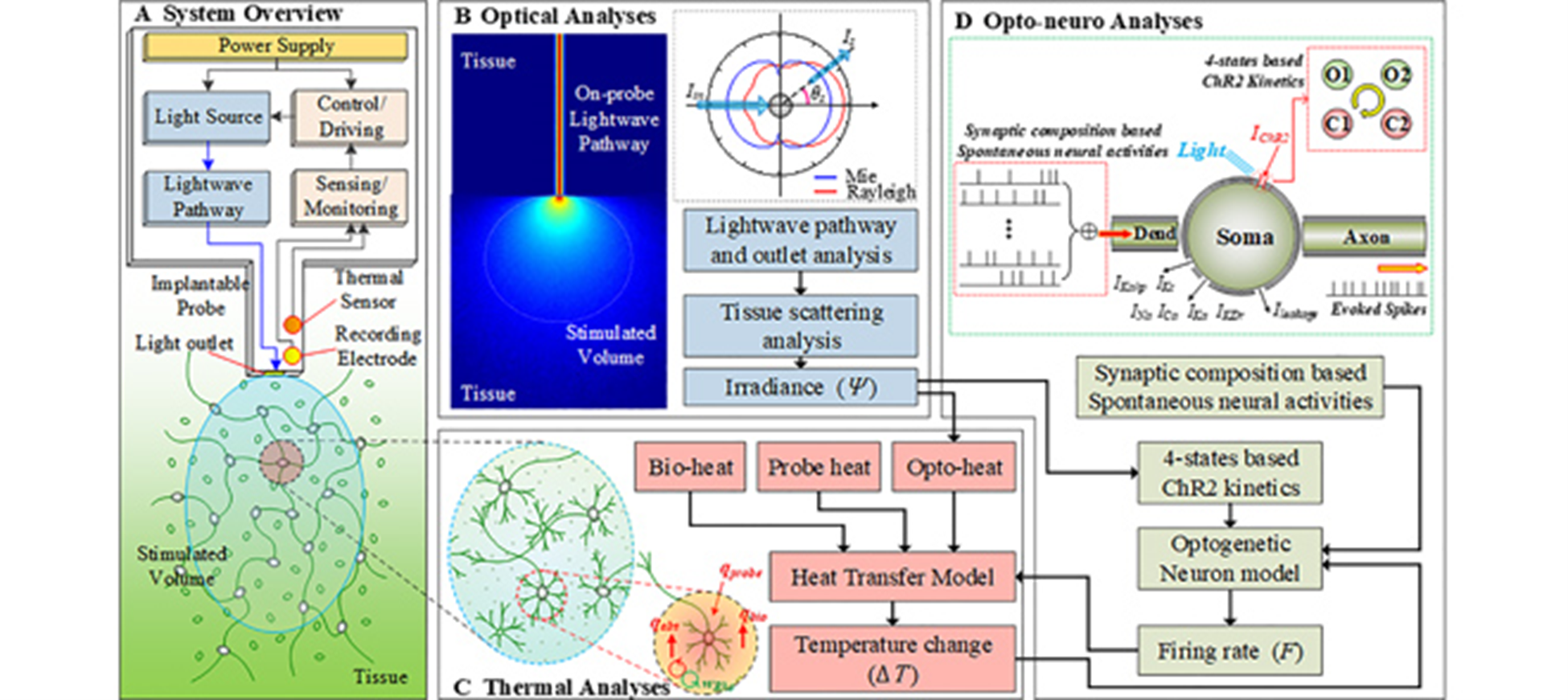
Optogenetic Multiphysical Fields Coupling Model for Implantable Neuroprosthetic Probes
Optogenetic-based neuroprosthetic therapies are increasingly being considered for human trials. However, the optoelectronic design of clinical-grade optogenetic-based neuroprosthetic probes still requires some thought. Design constraints include light penetration into the brain, stimulation efficacy, and probe/tissue heating. Optimisation can be achieved through experimental iteration. However, this is costly, time-consuming and ethically problematic. Hence it is highly desirable to have an alternative to excessive animal trials. Thus, a simulation tool for optimising probe design can be an

Modified Blowfish Algorithm Based on Improved Lorenz Attractor
Image security becomes important topic because of increasing image usage in communication besides assures information security which is unseen in these images such as military and medical images. Blowfish is a superb symmetric cryptography that ensures a high degree of resistance to attacks. The proposed system modifies Blowfish algorithm by substituting the function in blowfish round with light weight function to save memory and resources of the platforms and Using 3-D chaotic system (Improved Lorenz) that work as a key timetable for creating Blowfish sub keys in order to increasing
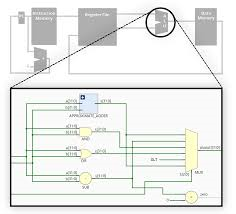
Single-Cycle MIPS Processor based on Configurable Approximate Adder
Enhancing computer architecture performance is a significant concern for architecture designers and users. This paper presents a novel approach to computer architecture design by using an approximate adder with configurable accuracy in a single-cycle MIPS processor as a study case. Using approximate adders decreased the delay on the expense of the design area. Using approximate computing with the MIPS processor, the timing performance has been improved by 253.4% compared to the lookahead adder. It has been implemented and tested using System-Verilog. © 2022 IEEE.
SSHC with One Capacitor for Piezoelectric Energy Harvesting
Piezoelectric vibration energy harvesters have attracted a lot of attention as a way to power self-sustaining electronic systems. Furthermore, as part of the growing Internet of Things (loT) paradigm, the ongoing push for downsizing and higher degrees of integration continues to constitute major drivers for autonomous sensor systems. Two of the most effective interface circuits for piezoelectric energy harvesters are synchronised switch harvesting (SSH) on inductor and synchronous electrical charge extraction; nevertheless, inductors are essential components in both interfaces. This study
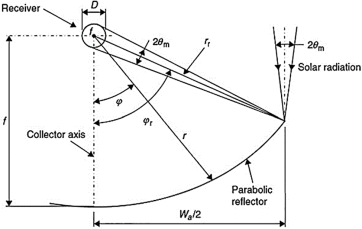
Investigative Review of Design Techniques of Parabolic Trough Solar Collectors
Parabolic trough solar collectors (PTCs) are among the most cost-efficient solar thermal technologies. They have several applications, such as feed heaters, boilers, steam generators, and electricity generators. A PTC is a concentrated solar power system that uses parabolic ref lectors to focus sunlight onto a tube filled with heat-transfer f luid. PTCs performance can be investigated using optical and thermal mathematical models. These models calculate the amount of energy entering the receiver, the amount of usable collected energy, and the amount of heat loss due to convection and radiation
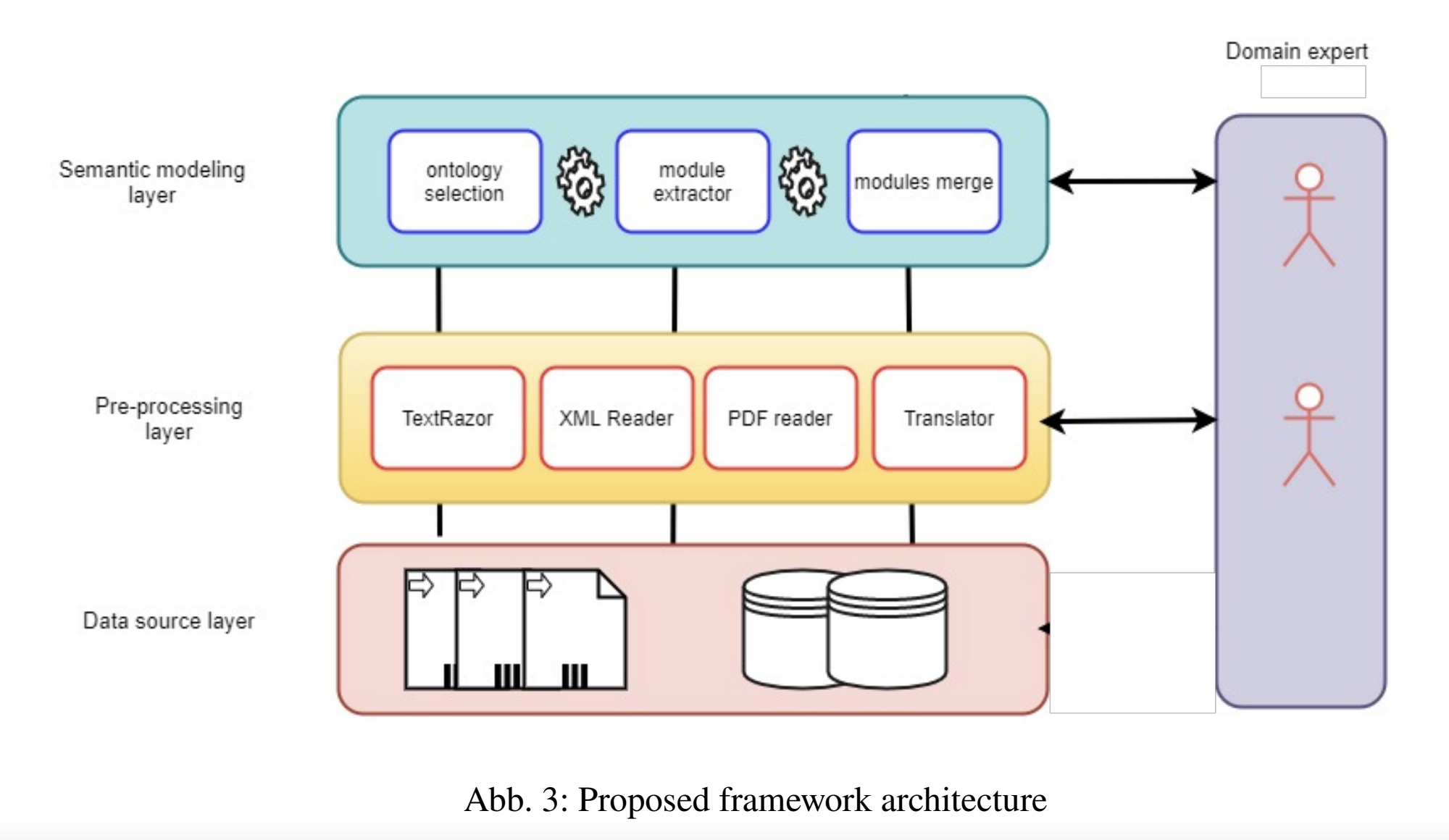
A Core Ontology to Support Agricultural Data Interoperability
The amount and variety of raw data generated in the agriculture sector from numerous sources, including soil sensors and local weather stations, are proliferating. However, these raw data in themselves are meaningless and isolated and, therefore, may offer little value to the farmer. Data usefulness is determined by its context and meaning and by how it is interoperable with data from other sources. Semantic web technology can provide context and meaning to data and its aggregation by providing standard data interchange formats and description languages. In this paper, we introduce the design
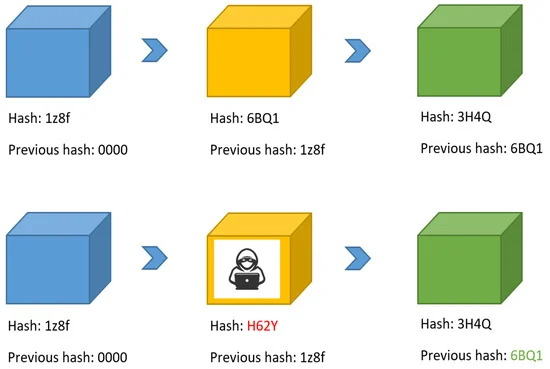
Smart Automotive Diagnostic and Performance Analysis Using Blockchain Technology
The automotive industry currently is seeking to increase remote connectivity to a vehicle, which creates a high demand to implement a secure way of connecting vehicles, as well as verifying and storing their data in a trusted way. Furthermore, much information must be leaked in order to correctly diagnose the vehicle and determine when or how to remotely update it. In this context, we propose a Blockchain-based, fully automated remote vehicle diagnosis system. The proposed system provides a secure and trusted way of storing and verifying vehicle data and analyzing their performance in
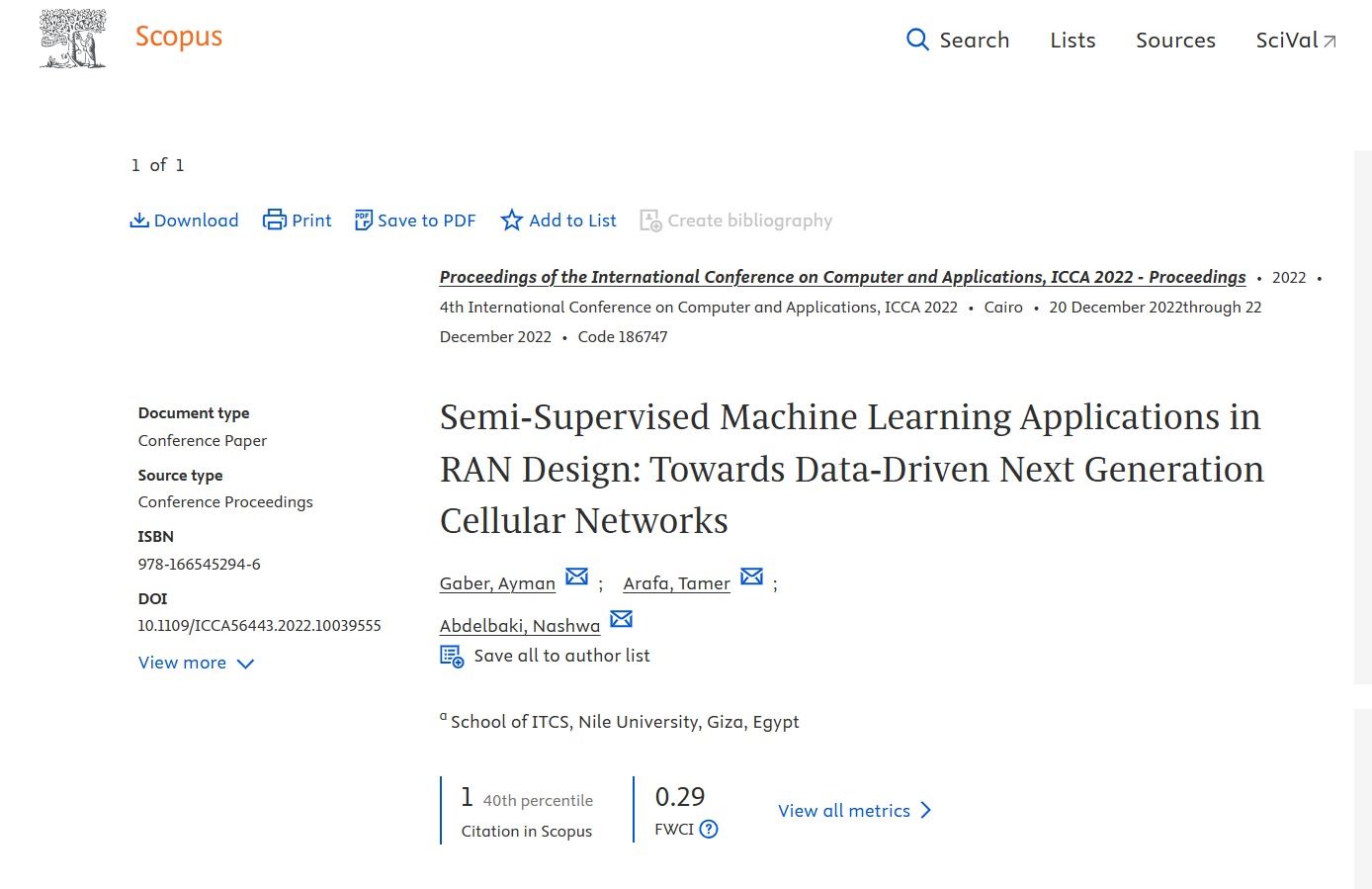
Semi-Supervised Machine Learning Applications in RAN Design: Towards Data-Driven Next Generation Cellular Networks
The explosive growth of mobile internet services and demand for data connectivity boosts the innovation and development in Radio Access Network (RAN) to define how next generation mobile networks will look like. Continuous improvement in existing RAN is crucial to meet very strict speed and latency requirements by different mobile applications with minimum investments. Exploiting the advancement in Machine Learning and AI-driven algorithms is essential to tackle these challenges in different functions within the RAN domain. In this paper we surveyed how to leverage different clustering
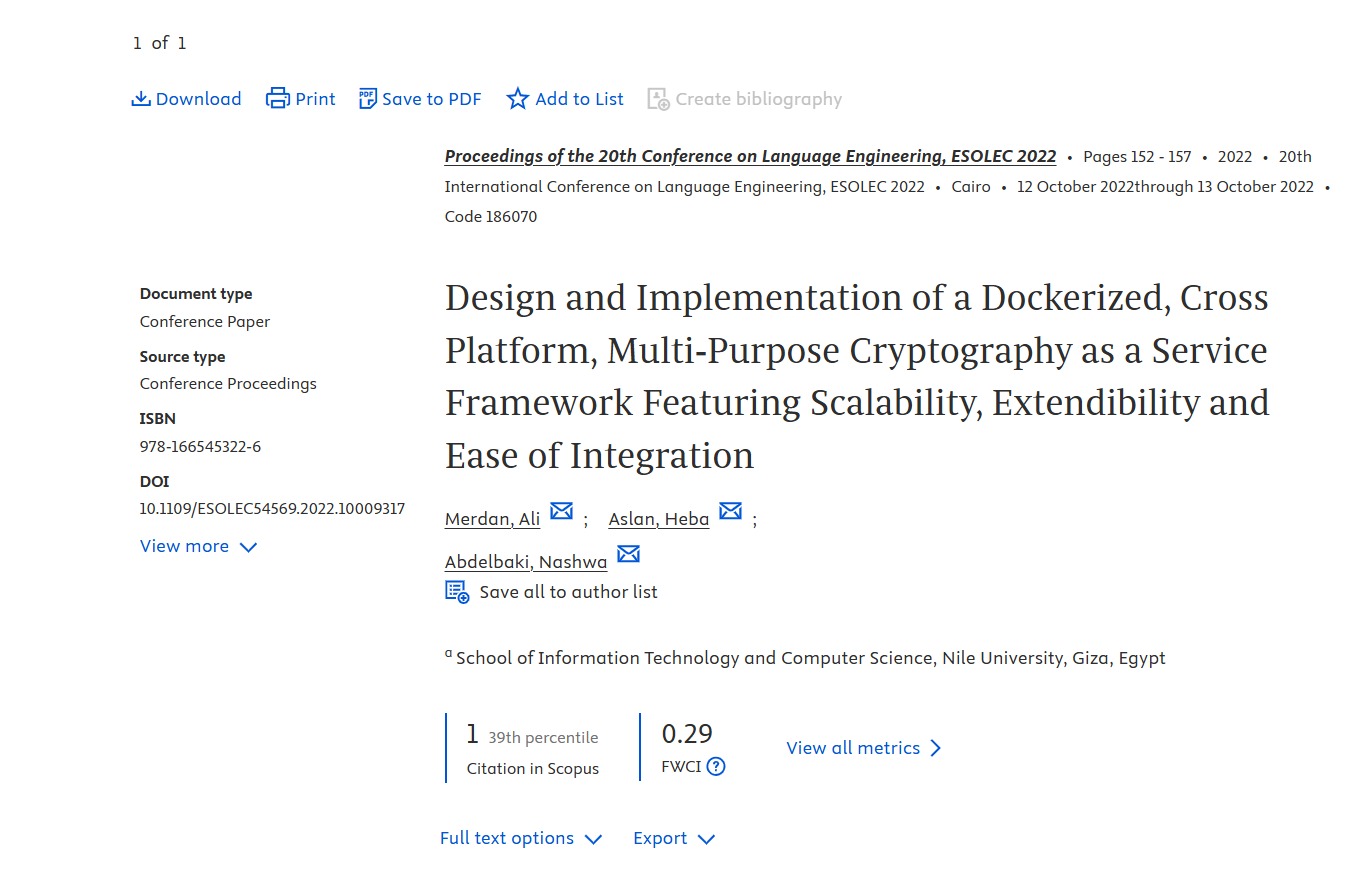
Design and Implementation of a Dockerized, Cross Platform, Multi-Purpose Cryptography as a Service Framework Featuring Scalability, Extendibility and Ease of Integration
Following cybersecurity st and ards nowadays is becoming one of the highest priorities to the digital specialists. Due to the global direction to apply digital transformation, data security is a concern. It becomes crucial to ensure data confidentiality, integrity, and availability whether while transmitting, at rest or even while processing it. The difficulty being faced by organizations, is the challenge of applying the needed security measures. Also, implementing, and maintaining the cryptographic algorithms that ensure the wellness of the data encryption. Having a crypto library or a